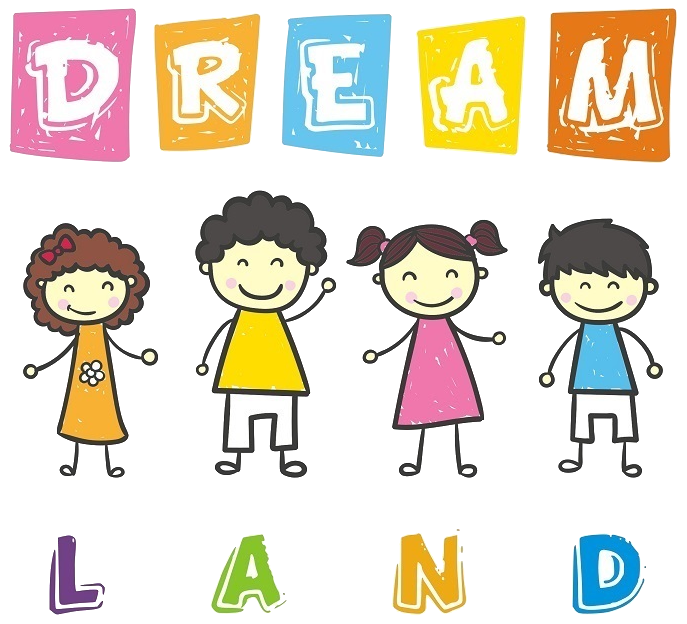Ekranizacija za roditelje
PU “DREAMLAND“, Novi Sad
WHY CHILDREN DON’T NEED SCREENS AT AN EARLY AGE!
We used to have a cartoon at 7.15pm., do you remember?
Nowadays, there are television channels that broadcast cartoons all day long, non-stop, and you tube channels constantly play funny clips. Children like to be entertained, they like movement and joy, colors, glitter, theatricality and play. However, if we offer them too much of these contents, our (parental) place in their interests slowly begins to fade. None of us can (always) be so cheerful and always ready to move, therefore, over the time, we lose that race and we move away from our children, acctualy, they from us. Some parents allow children to use screens during meals as well, which leads to problems with eating: children do not chew, do not focus on the type of food they eat, do not use cutlery and they are generally completely unaware of the act of eating and only passively participate. Screens today become digital babysitters for our children: they entertain our children when we are not able to, protect them from all kinds of ideas while we are busy with work, postpone going to the park "because we don't feel like it anyway" and they are not paid for their service separately (like kindergarten, going to the theater or the zoo). Screens provide parents with the time to finish some work or relax a bit, but they are not aware of the consequences of that screens can have on children's development and behavior over a long period of time. It seems like decades ago when mothers stayed at home more, children were surrounded by the whole family and spent a lot of time in outdoor activities. Today the situation is different: we, the parents are overworked, children stay at home more, without proper supervision of adults who are busy with responsibilities, and their main entertainment is watching TV/cartoons and consuming other types of media. Daily exposure to content on TV and other "screens" affects the development of behavior, language, cognition, and attention in both children with typical and atypical development. The effects are even more profound in children who already face difficulties in communication and socialization. The speech of a small child who spends many hours in front of a screen and is exposed to a foreign language, to begin with, the native language develops more slowly, takes on elements of theatricality, less often tape-recording, echolalia, is less communicative and often adopts elements of another language. In situations where children are exposed with screens, parents generally address their children less, they speak shorter, usually with one word, which supports the assumption that watching screens interrupts verbal interactions between parents and children, and which significantly reduces the opportunities for modeling two-way communication and expressing in complete sentences. In addition to language delays, children are at increased risk for obesity, violence and aggression, loss of social skills, as well as problems with attention, anxiety and depression, problems with lack of sleep, vision, migraine headaches and arthritis (American Academy of Pediatrics [AAP ], 2016).
American Academy of Pediatrics Advisory Board in 2016: does not recommend screen use for children younger than 18-24 months, while screen viewing with parents is recommended for children ages 18-24 months.
For children aged 2-5 years, it is recommended: "limited screen time to 1 hour a day for watching high-quality programs, due to the harmful effect it can have on the developing the brain". They also recommended that parents review the media their children use and not allow screen time during mealtimes or 1 hour before bedtime. They also advise removing televisions and other media devices from children's bedrooms.
Improved education and awareness of the potential delay in speech and language development in young children due to excessive screen time can empower families to reduce screen time in their homes, as parents often allow screen use due to limited knowledge of the impact that screens can have on children's development. . (Beck et al., 2015).(4)
With new technologies constantly developing, childhood is becoming more and more enveloped in the digital world. In recent years, numerous studies have been conducted on the influence of the media on the growth and development of children. Viewing different content on screens increased the risk of delayed cognitive, language and motor development of children who were frequently exposed to different content. Children's language development and vocabulary growth is directly related to the amount of time parents spend with their children. Speech and language comprehension and speech production, as well as the interactions that a child has with other people, have a strong influence on a child's development, in relation to the influence of the content they consume through the screen. Excessive use, i.e., the time spent on screens, can hinder children's development precisely because the child spends less time interacting with parents or guardians. Delayed speech and language development until the child's 5th year of life is a significant risk factor for social and emotional problems in adulthood period. (Schoon, Parsons, Rush, & Lav, 2010) [6]. Parents must pay attention to the activities and content of cartoons by creating a balance in the time for watching cartoons, and other social activities (joint play, family free time such as walking, reading a book, etc.)
Prim dr Olivera Aleksić Hil, mr sci, dečji
psihijatar, psihoanalitičar, psihoanalitički
psihoterapeut za decu i adolescente, porodični
terapeut
Institut za mentalno zdravlje
Olgica Stojić, stručni saradnik psiholog
Tatjana Bjeletić, stručni saradnik pedagog
